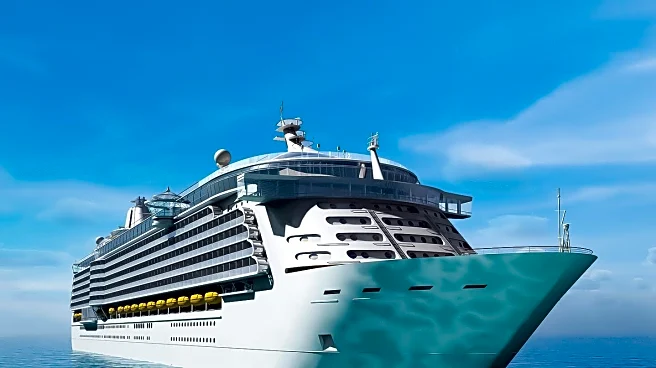What is the story about?
What's Happening?
Cruise industry experts have revealed that the relaxing experience aboard cruise ships is not solely due to the luxurious amenities but also the result of psychological strategies. The 'blue mind effect,' which suggests that proximity to water induces a meditative state, is a key design element in cruise ships. Additionally, limited cell service encourages passengers to disconnect from technology, contributing to a digital detox. These elements, combined with diverse entertainment options and multiple destinations, create a holistic experience that enhances passenger satisfaction.
Why It's Important?
The cruise industry's use of psychological tactics highlights the importance of environment and design in enhancing customer experience. By leveraging natural elements like the ocean and encouraging a break from technology, cruise lines can offer a unique form of relaxation that is increasingly sought after in today's fast-paced world. This approach not only boosts passenger satisfaction but also differentiates cruise vacations from other travel experiences, potentially increasing demand and profitability for the industry.
What's Next?
As the cruise industry continues to evolve, there may be further innovations in ship design and onboard experiences that enhance the psychological benefits of cruising. Cruise lines might explore new destinations and activities that align with the 'blue mind effect' and digital detox trends. Additionally, the industry could see increased collaboration with wellness experts to develop programs that maximize relaxation and mental well-being for passengers.
Beyond the Headlines
The emphasis on psychological well-being aboard cruise ships reflects broader societal trends towards mental health awareness and the desire for experiences that promote emotional well-being. This focus could influence other sectors of the travel industry, encouraging hotels, resorts, and airlines to incorporate similar strategies into their offerings.
















